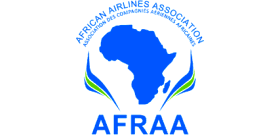 AFRAA: 'Out of control' COVID-19 threatens African rebound
AFRAA: 'Out of control' COVID-19 threatens African rebound
The African Airlines Association (AFRAA) expressed concern over rapidly rising cases of COVID-19 on the continent, warning that the rise in infection rates could see African nations slam the brakes on any relaxation of restrictions on commercial aviation.
The organization, which boasts 46 members accounting for more than 85% of total international traffic carried by African airlines, warned that poor financial performance by the continent's airlines in the first half of 2021 represented "a direct threat to the survival of the African aviation industry if the trend continues to the end of the year."
AFRAA said that the continent “continues to witness a significant increase in number of COVID-19 cases," adding: "The situation seems to be getting out of control, especially in South Africa where daily infection has now exceeded 15,000 cases. Some African governments are resorting to lockdowns again as a way to curb the surging COVID-19 infections and deaths. The Delta variant is indeed a threat to the safe and smooth reopening of borders.”
Traffic statistics for July showed African airlines' passenger levels at just 42.9% of the same month in 2019. Capacity reached 53.7% of pre-COVID-19 levels in July.
AFRAA said that domestic markets across Africa continued to post the highest performance levels, with demand for domestic passenger travel significantly out-performing both intra-Africa and intercontinental flights.
On the brighter side, May 2021 saw a resumption of 62.5% of international routes compared to the pre-COVID-19 period. That recovery further improved to 72.7% in June and 74.7% in July.
“Some countries have been easing travel restrictions to facilitate the movement of people and tourists across borders. There is however concern that this positive trend may be reversed in subsequent months if the rate of COVID-19 infections continues to soar,” the organization said.
The worst-hit African nation was Mauritius, with the Indian Ocean island reporting a 98% drop in intra-African connectivity compared to February 2020.
